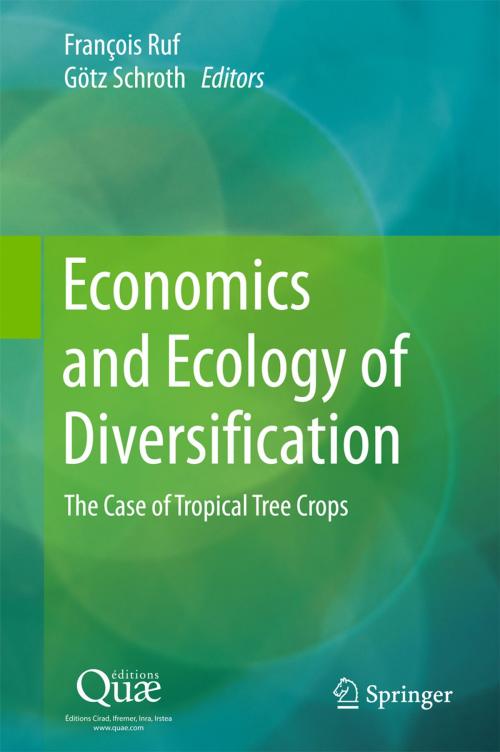Economics and Ecology of Diversification
The Case of Tropical Tree Crops
Nonfiction, Science & Nature, Technology, Agriculture & Animal Husbandry, Science, Biological Sciences, Environmental Science| Author: | ISBN: | 9789401772945 | |
| Publisher: | Springer Netherlands | Publication: | September 23, 2015 |
| Imprint: | Springer | Language: | English |
| Author: | |
| ISBN: | 9789401772945 |
| Publisher: | Springer Netherlands |
| Publication: | September 23, 2015 |
| Imprint: | Springer |
| Language: | English |
The monoculture systems that have been encouraged by governments since the 1960s have led to major socio-economic and environmental crises. Now the diversification of tree crop systems is advancing throughout the tropics. Why and when does diversification take place? What categories of farmers diversify? What obstacles do they have to overcome, and how do public and private policies interfere in this process? How do land use systems and landscapes evolve as a result of this diversification? According to the authors of this volume, diversification is certainly a response to market risks, but also to the depletion of environmental resources. Ecological changes such as declining soil fertility and increasing pressure from pests, diseases and weeds intensify at the end of monoculture cycles, driving crop change and diversification of farming systems. Through 15 case studies from Africa, Latin America, Asia and the Pacific, the authors provide us with in-depth insights into the economy and ecology of family agriculture and its recent developments.
The monoculture systems that have been encouraged by governments since the 1960s have led to major socio-economic and environmental crises. Now the diversification of tree crop systems is advancing throughout the tropics. Why and when does diversification take place? What categories of farmers diversify? What obstacles do they have to overcome, and how do public and private policies interfere in this process? How do land use systems and landscapes evolve as a result of this diversification? According to the authors of this volume, diversification is certainly a response to market risks, but also to the depletion of environmental resources. Ecological changes such as declining soil fertility and increasing pressure from pests, diseases and weeds intensify at the end of monoculture cycles, driving crop change and diversification of farming systems. Through 15 case studies from Africa, Latin America, Asia and the Pacific, the authors provide us with in-depth insights into the economy and ecology of family agriculture and its recent developments.















